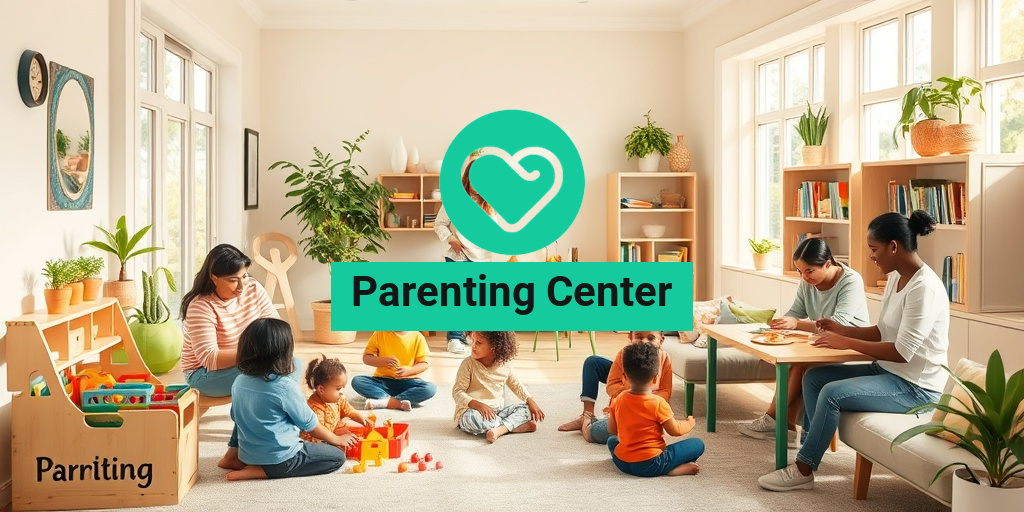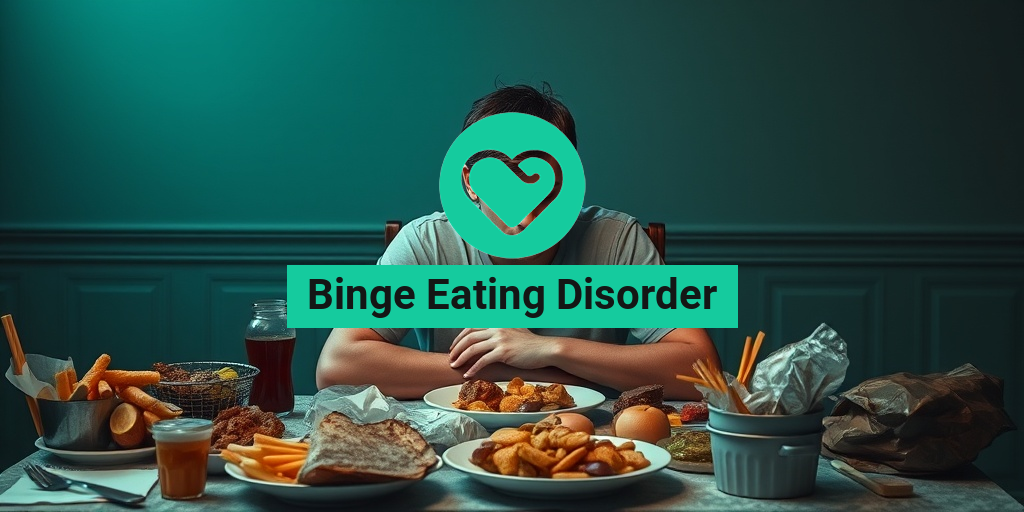Understanding Child Health
Child health is a crucial aspect of parenting that encompasses physical, emotional, and social well-being. As parents, understanding the various factors that contribute to your child’s health can empower you to make informed decisions and foster a nurturing environment. In this section, we will explore the key components of child health and how a Parenting Center can support you in this journey.
The Importance of Regular Check-Ups
Regular health check-ups are essential for monitoring your child’s growth and development. These visits allow healthcare providers to:
- Assess physical growth and development milestones
- Administer vaccinations to prevent diseases
- Identify any potential health issues early on
By establishing a routine of regular check-ups, you can ensure that your child is on track and address any concerns promptly. Many parenting centers offer resources and support for scheduling these important appointments.
Nutritional Needs for Growing Children
Nutrition plays a vital role in your child’s health. A balanced diet rich in fruits, vegetables, whole grains, and proteins is essential for their physical and cognitive development. Here are some tips to ensure your child receives the nutrients they need:
- Encourage a variety of foods to promote a balanced diet.
- Limit sugary snacks and beverages to prevent obesity and dental issues.
- Involve your child in meal planning and preparation to foster healthy eating habits.
For more personalized dietary advice, consider consulting with a nutritionist or visiting a parenting center that offers nutritional counseling.
Emotional and Social Well-Being
Child health is not just about physical well-being; emotional and social health are equally important. Children need a supportive environment where they can express their feelings and develop social skills. Here are some ways to promote emotional health:
- Encourage open communication about feelings and experiences.
- Provide opportunities for social interaction with peers.
- Teach coping strategies for dealing with stress and anxiety.
Many parenting centers offer workshops and resources to help parents foster emotional intelligence in their children.
Common Childhood Illnesses
As children grow, they are susceptible to various illnesses. Understanding these common childhood illnesses can help you recognize symptoms early and seek appropriate care. Here are some of the most prevalent childhood illnesses:
Colds and Respiratory Infections
Colds are among the most common illnesses in children, often caused by viruses. Symptoms include:
- Runny or stuffy nose
- Coughing
- Sore throat
- Fever
While most colds resolve on their own, it’s essential to monitor your child’s symptoms and consult a healthcare provider if they worsen.
Gastroenteritis (Stomach Flu)
Gastroenteritis is another common illness characterized by inflammation of the stomach and intestines. Symptoms may include:
- Vomiting
- Diarrhea
- Abdominal pain
- Fever
Staying hydrated is crucial during this illness. If symptoms persist, seek medical attention.
Ear Infections
Ear infections are prevalent in young children and can cause significant discomfort. Symptoms may include:
- Pain in the ear
- Fever
- Irritability
- Difficulty sleeping
Consulting a healthcare provider is essential for proper diagnosis and treatment, which may include antibiotics.
Allergies and Asthma
Allergies and asthma are increasingly common in children. Symptoms can vary widely, but common signs include:
- Frequent sneezing or coughing
- Wheezing or shortness of breath
- Skin rashes or hives
Managing allergies and asthma often requires a comprehensive approach, including medication and lifestyle adjustments. A parenting center can provide valuable resources and support for families dealing with these conditions.
In conclusion, understanding child health and being aware of common childhood illnesses are vital for every parent. By utilizing resources like Yesil Health AI for evidence-based health answers and engaging with a local parenting center, you can ensure your child thrives both physically and emotionally. Remember, a healthy child is a happy child! 🌟

Signs of Developmental Delays
As parents, one of our primary concerns is ensuring that our children develop healthily and reach their milestones on time. However, sometimes children may experience developmental delays, which can affect their physical, cognitive, emotional, and social growth. Recognizing the signs early can make a significant difference in their development. Here are some key indicators to watch for:
Physical Developmental Delays
Physical development refers to a child’s ability to control their body movements. Here are some signs that may indicate a delay:
- Delayed Motor Skills: If your child is not crawling, walking, or running at the expected age, it may be a cause for concern.
- Poor Coordination: Difficulty in activities that require hand-eye coordination, such as catching a ball or using utensils, can signal a delay.
- Weak Muscle Tone: If your child seems floppy or has difficulty holding their head up, this could indicate a physical developmental issue.
Cognitive Developmental Delays
Cognitive development involves how children think, learn, and solve problems. Signs of cognitive delays include:
- Difficulty with Problem-Solving: If your child struggles to figure out simple puzzles or tasks that are age-appropriate, it may indicate a delay.
- Limited Attention Span: An inability to focus on tasks or play for a reasonable amount of time can be a sign of cognitive challenges.
- Language Delays: If your child is not speaking or using words by the expected age, this could be a significant indicator of cognitive delays.
Emotional and Social Developmental Delays
Emotional and social development is crucial for a child’s ability to interact with others. Signs of delays in this area include:
- Difficulty in Social Interactions: If your child struggles to make friends or engage in play with peers, it may indicate a social delay.
- Limited Emotional Expression: Children who have trouble expressing their feelings or understanding others’ emotions may be experiencing delays.
- Excessive Fear or Anxiety: If your child exhibits extreme fear or anxiety in situations that are typically manageable, this could be a sign of emotional delays.
Recognizing these signs early can help you seek the necessary support and interventions. If you suspect your child may be experiencing developmental delays, consider reaching out to a parenting center for guidance and resources. They can provide valuable information and support tailored to your child’s needs. 🌟
Healthy Nutrition for Kids
Nutrition plays a vital role in a child’s growth and development. Providing a balanced diet not only supports physical health but also enhances cognitive function and emotional well-being. Here are some essential tips for ensuring your child receives healthy nutrition:
Balanced Meals Are Key
Creating balanced meals is crucial for your child’s health. Aim to include a variety of food groups:
- Fruits and Vegetables: These should make up a significant portion of your child’s diet. Aim for a rainbow of colors to ensure they receive a wide range of nutrients. 🍎🥦
- Whole Grains: Choose whole-grain bread, pasta, and cereals over refined options to provide more fiber and nutrients.
- Protein Sources: Incorporate lean meats, fish, eggs, beans, and nuts to support growth and development.
Limit Sugary and Processed Foods
While it’s okay to indulge occasionally, try to limit sugary snacks and processed foods. These can lead to energy spikes and crashes, affecting your child’s mood and concentration. Instead, opt for healthier alternatives:
- Homemade Snacks: Prepare snacks like fruit smoothies, yogurt with berries, or whole-grain crackers with cheese.
- Healthy Desserts: Consider fruit-based desserts or yogurt parfaits instead of sugary treats.
Encourage Healthy Eating Habits
Teaching your child about healthy eating habits is essential for their long-term health. Here are some strategies:
- Involve Them in Meal Prep: Let your child help with grocery shopping and meal preparation. This can make them more interested in trying new foods.
- Set a Good Example: Children often mimic their parents’ behaviors. Show them that you enjoy healthy foods and make nutritious choices.
- Establish Regular Meal Times: Consistent meal and snack times can help regulate your child’s appetite and promote healthy eating patterns.
By focusing on healthy nutrition, you can help your child develop a positive relationship with food and set the foundation for a lifetime of healthy habits. If you’re looking for more resources or support, consider visiting a local parenting center for workshops and guidance on nutrition for kids. 🥗

Importance of Vaccinations
Vaccinations play a crucial role in safeguarding the health of children and the community at large. They are designed to protect against various infectious diseases that can have serious consequences. Understanding the importance of vaccinations can help parents make informed decisions for their children’s health.
What Are Vaccinations?
Vaccinations, or immunizations, are medical procedures that introduce a small amount of weakened or inactive germs into the body. This process stimulates the immune system to recognize and fight these germs in the future. By doing so, vaccinations help prevent diseases such as measles, mumps, rubella, and whooping cough.
Why Are Vaccinations Essential?
- Protection Against Serious Diseases: Vaccines protect children from potentially life-threatening diseases. For instance, diseases like polio and diphtheria can lead to severe complications, including paralysis and death.
- Herd Immunity: When a significant portion of the population is vaccinated, it creates herd immunity. This means that even those who cannot be vaccinated, such as infants or individuals with certain health conditions, are indirectly protected.
- Cost-Effective Health Care: Preventing diseases through vaccination is far more cost-effective than treating them. Vaccines save families and healthcare systems money by reducing hospital visits and medical treatments.
- Global Health Impact: Vaccination programs have led to the eradication of diseases like smallpox and a significant reduction in others, showcasing their global health benefits.
Common Vaccination Schedules
Vaccination schedules can vary by country and health organization, but generally, children receive their first vaccinations in infancy. Here’s a typical schedule:
- At birth: Hepatitis B
- 2 months: DTaP, Hib, IPV, PCV, RV
- 4 months: DTaP, Hib, IPV, PCV, RV
- 6 months: DTaP, Hib, IPV, PCV, RV, Hepatitis B
- 12-15 months: MMR, Varicella, Hib, PCV
- 4-6 years: DTaP, IPV, MMR, Varicella
It’s essential for parents to consult with their pediatricians to ensure their children are up-to-date with vaccinations. 📅
Managing Childhood Allergies
Childhood allergies are becoming increasingly common, affecting millions of children worldwide. Managing these allergies effectively is vital for ensuring a child’s well-being and quality of life.
Understanding Childhood Allergies
Allergies occur when the immune system reacts to a substance (allergen) that is typically harmless. Common allergens include:
- Food: Milk, eggs, peanuts, tree nuts, soy, wheat, fish, and shellfish.
- Environmental: Pollen, dust mites, mold, and pet dander.
- Insect Stings: Bees, wasps, and fire ants.
Signs and Symptoms of Allergies
Recognizing the signs of allergies in children is crucial for timely management. Common symptoms include:
- Skin reactions such as hives or eczema
- Respiratory issues like sneezing, nasal congestion, or asthma
- Gastrointestinal problems such as vomiting or diarrhea
- Anaphylaxis, a severe allergic reaction that requires immediate medical attention
Effective Management Strategies
Managing childhood allergies involves a combination of avoidance strategies, medication, and education:
- Avoidance: Identify and avoid known allergens. For food allergies, this may involve reading labels carefully and communicating with schools and caregivers.
- Medication: Antihistamines, corticosteroids, and epinephrine auto-injectors can help manage symptoms and treat severe reactions.
- Education: Teach children about their allergies and how to recognize symptoms. This empowers them to take charge of their health.
By understanding and managing childhood allergies, parents can help their children lead healthy, active lives. 🌟

Promoting Mental Health in Children
As parents, one of our most important responsibilities is to nurture our children’s mental health. A Parenting Center can be an invaluable resource in this journey, offering guidance and support tailored to the unique needs of each child. Here are some effective strategies to promote mental well-being in children:
Understanding Emotional Development
Children experience a wide range of emotions, and understanding these feelings is crucial for their mental health. Encourage open conversations about emotions by asking questions like, “How did that make you feel?” This helps children articulate their feelings and fosters emotional intelligence.
Encouraging Positive Relationships
Strong relationships with family and peers are essential for a child’s mental health. Here are some ways to nurture these connections:
- Family Time: Schedule regular family activities, such as game nights or outings, to strengthen bonds.
- Social Skills: Teach children how to make friends and resolve conflicts, which can enhance their social interactions.
- Supportive Environment: Create a home atmosphere where children feel safe to express themselves without judgment.
Promoting Healthy Coping Mechanisms
Life can be challenging, and teaching children how to cope with stress is vital. Here are some effective coping strategies:
- Mindfulness Practices: Introduce mindfulness exercises, such as deep breathing or meditation, to help children manage anxiety.
- Physical Activity: Encourage regular exercise, which can boost mood and reduce stress.
- Creative Outlets: Provide opportunities for creative expression through art, music, or writing, allowing children to process their emotions.
Seeking Professional Help
Sometimes, children may need additional support. A Parenting Center can connect families with mental health professionals who specialize in child psychology. Don’t hesitate to seek help if you notice signs of distress, such as:
- Persistent sadness or irritability
- Changes in sleep or eating patterns
- Withdrawal from friends and activities
Creating a Safe Home Environment
A safe home environment is foundational for a child’s mental and emotional well-being. Here are some key elements to consider when creating a nurturing space:
Physical Safety
Ensure that your home is physically safe for children. This includes:
- Childproofing: Secure furniture, cover electrical outlets, and keep hazardous materials out of reach.
- Emergency Preparedness: Have a plan in place for emergencies, including fire drills and first aid kits.
Emotional Safety
Emotional safety is just as important as physical safety. Here are ways to foster an emotionally secure environment:
- Open Communication: Encourage children to share their thoughts and feelings without fear of criticism.
- Validation: Acknowledge their feelings and experiences, showing that their emotions are valid and important.
- Consistent Routines: Establishing daily routines can provide a sense of stability and predictability, which is comforting for children.
Encouraging Independence
While safety is crucial, it’s also important to encourage independence. Allow children to make age-appropriate choices, which can boost their confidence and decision-making skills. Here are some ideas:
- Choice in Activities: Let them choose their extracurricular activities or hobbies.
- Self-Care: Teach them basic self-care skills, such as dressing themselves or preparing simple meals.
Creating a Positive Atmosphere
Finally, the overall atmosphere of your home can significantly impact your child’s mental health. Consider the following:
- Positive Reinforcement: Celebrate achievements, no matter how small, to foster a sense of accomplishment.
- Limit Negative Influences: Be mindful of the media and conversations that children are exposed to, ensuring they are age-appropriate and positive.
By focusing on these aspects, you can create a nurturing environment that supports your child’s mental health and overall well-being. Remember, a Parenting Center can provide additional resources and support tailored to your family’s needs. 🌟

Frequently Asked Questions about Parenting Centers
What is a Parenting Center?
A Parenting Center is a community resource designed to support parents and caregivers in their journey. These centers often provide educational programs, workshops, and resources to help with child development, parenting skills, and family dynamics.
What services do Parenting Centers offer?
- Workshops and Classes: Many centers offer classes on topics such as child development, discipline strategies, and effective communication.
- Support Groups: These provide a space for parents to share experiences and seek advice from others in similar situations.
- Resource Libraries: Access to books, articles, and other materials related to parenting and child care.
- One-on-One Counseling: Some centers offer personalized support for parents facing specific challenges.
How can I find a Parenting Center near me?
You can search online for a Parenting Center near me or check local community boards and social media groups. Many cities have directories that list available resources for parents.
Are Parenting Centers available in specific locations?
Yes! There are Parenting Centers in various locations, including Covington, LA, and Syracuse, NY. You can also find centers in larger cities like New Orleans and St. Tammany.
What are the benefits of attending a Parenting Center?
- Access to Expert Advice: Gain insights from professionals in child development and parenting.
- Community Support: Connect with other parents and build a support network.
- Skill Development: Learn new parenting techniques and strategies to enhance your parenting skills.
Can I read reviews about Parenting Centers?
Yes, many Parenting Centers have online reviews available on platforms like Google and Yelp. Reading these reviews can help you choose the right center for your needs.
What should I expect during my first visit to a Parenting Center?
During your first visit, you can expect to meet staff members, learn about the services offered, and possibly participate in an introductory workshop or session. It’s a great opportunity to ask questions and get a feel for the center’s environment.
Are there any costs associated with Parenting Center services?
Many Parenting Centers offer free services, while others may charge a nominal fee for specific workshops or classes. It’s best to check with the center directly for detailed information on costs.
How can I get involved with my local Parenting Center?
You can get involved by volunteering, attending events, or participating in workshops. Many centers welcome parents who want to contribute their time and skills to support other families.
Can I find photos of Parenting Centers online?
Yes, many Parenting Centers share photos on their websites or social media pages. This can give you a glimpse of the facilities and activities offered.




